What exactly is Multiple sclerosis – and how can it affect you finding or keeping a job?
What exactly is Multiple sclerosis – and how can it affect you finding or keeping a job?
Living with MS
Signs and symptoms of MS can be different for each person affected by it, depending on how seriously damaged the nerve fibres are and where they’re located in the central nervous system. This means that the effects of MS can range from experiencing long periods of remission with no new symptoms, to numbness and blurred vision or loss of the ability to walk.
There’s no cure for multiple sclerosis but there are treatments that can either help to speed up recovery after each attack, change the trajectory of the disease, or better manage symptoms.
Working with MS
So, what does this mean for people living with MS, and looking for work?
It’s important for you to know that, while you may encounter challenges when looking for supportive workplaces and employers, there are many industries and jobs where you can make a valuable contribution, and thrive while doing it.
MS symptoms which could potentially impact work life include complications with speech and vision, difficulties with motor and bladder control, mobility issues, weakness, fatigue and associated difficulty concentrating or remembering. The other main issue with multiple sclerosis is its unpredictability: it’s impossible to tell how the condition will evolve over time.
Adapting your current work routine with MS
Depending on your current employment set up you might feel that you can stay in your current role and make changes to help work in a way that doesn’t exacerbate your symptoms.
Your responsibilities may need reassessing for a more manageable workload. Shifting to less physically intensive tasks and moving towards longer or more frequent breaks are great strategies if fatigue and mobility are challenging.
A self-paced workload, consciously reducing distractions in the workplace, the use of schedulers to aid with memory challenges and a shift to providing written instructions as well as verbal instructions are all popular and useful tactics currently helping CoAct customers with MS thrive in the workplace.
Adapting workplaces for people with disability
Assistive equipment can also help you to continue independently fulfilling your responsibilities in the role.
This might look like ergonomic chairs, adjustable workstations and an accessible, wheelchair friendly location. It’s also important to note that employers may be eligible for Government funding to make workplace modifications such as:
- Accommodating a personal attendant or service animal
- Accessible facilities for mobility aids
- Replacing your chair or desk with ergonomic alternatives
- Air conditioning or fans by your workstation
After an initial assessment responsibilities should be regularly checked against symptoms to clarify what further adjustments need to be made.
Finding a new job with MS
If continuing with your current role just doesn’t feel possible, or the workplace environment or dynamic isn’t supportive enough for you to continue, there are a few key points to consider when you’re looking for a new job now that you’re living with MS.
Transferable skills and your current capabilities are probably top of mind, but think about what genuinely interests you too. Because now more than ever it will be beneficial for your work to be a source of satisfaction rather than stress. Get comfortable with owning what you do and don’t like so that when you connect with an employment services recruitment partner to help you find a job you genuinely enjoy you can be clear on what you’re looking for.
Freelancing with MS
Freelancers will tell you that they have the ultimate set up when it comes to freedom versus income. These usually blend working from home with onsite work for a balanced blend of autonomous and structured working. This could work well for you if you’re a creative with skills that suit freelance work. It could also offer more control over your calendar, which might help with managing unpredictable symptoms and accommodating healthcare appointments and any other selfcare commitments you’ll need to prioritise in order to thrive.
Remote working with MS
Remote work typically has the benefit of more flexibility, which could help with managing fatigue. No commuting also removes challenges for people with symptoms that affect walking and movement.
Office work with MS
Office based roles where adjustments have been made to make the workplace more accessible could suit you if they empower you to be better organised and create a routine that helps with focus and concentration. As mentioned above workload adjustments and assistive equipment could make all the difference here.
Why work when you have MS?
As well as the more obvious financial benefits, working when you have MS can improve your capacity for self compassion and self confidence, as you navigate your new role and celebrate personal achievements. It can also bring renewed independence and a real sense of purpose as you successfully settle into the new routine.
It can also reduce feelings of isolation by connecting you with a new group of people and allows you to express yourself as someone other than a friend, sibling, offspring, parent or partner.
How CoAct can help you
If you’re living with MS and looking for work, CoAct is here to support you. You could be eligible for Disability Employment Services, a government funded program that helps people find a job they enjoy while living with disability, injury or illness.
Register with us today and a Recruitment Partner will help you to:
- Figure out what type of jobs are the best fit for you
- Explore current job vacancies
- Write your resumes and fill out job applications
- Prepare for phone and in person job interviews
Post categories
- Employers (20)
- Job seeker tips (172)
- News (56)
- Real stories (144)
- Referral partners (1)







